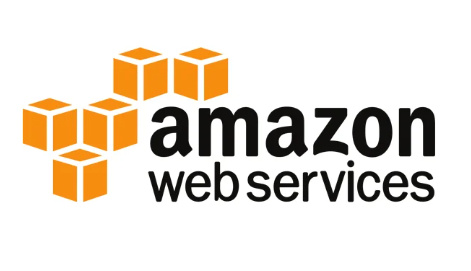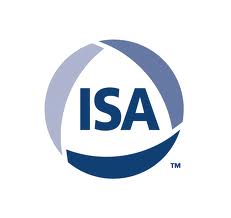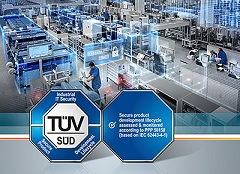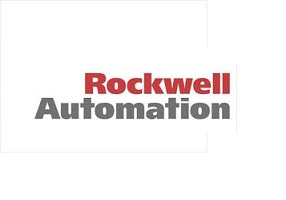 Recently, the ISA Security Compliance Institute (ISCI) has welcome the Amazon Web Services (AWS) as the latest ISCI member.
Recently, the ISA Security Compliance Institute (ISCI) has welcome the Amazon Web Services (AWS) as the latest ISCI member.
In the industrial sector, companies around the world are adopting AWS to take advantage of industrial internet of things (IIoT), artificial intelligence (AI), and machine learning (ML) capabilities needed to drive operational efficiencies in their smart factories and industrial operations. Continuous digitalization and progressive interconnectivity of the production environment is important for capturing value from IIoT solutions. AWS and AWS IoT services are key to providing safe and secure industrial digital transformation.
“Joining ISA Security Compliance Institute demonstrates AWS’s commitment to advancing cybersecurity standards and certification for the global community of manufacturers, government agencies, and all industrial customers,” stated Brad Behm, Senior Principal Technologist, AWS.
With the increasing proliferation of IIoT systems and cloud services for innovation and digital transformation, government agencies and industrial customers are faced with protecting an expanding attack surface. The ISA/IEC 62443 series of standards was written before IIoT technologies were common, but provides a strong basis for securing these environments.
“AWS is committed to collaborating with the ISA Global Cybersecurity Alliance (ISAGCA), ISCI, the ISA99 standards committee, and industry partners, to update the ISA/IEC 62443 series of standards and certifications to ensure that all parties properly address emerging IIoT security requirements; all while advocating for vendor-neutral, interoperable, international standards-based operational technolgoy (OT) and IIoT cybersecurity solutions,” stated Ryan Dsouza, Principal IIoT Security Solution Architect, AWS.
As a member of ISASecure, AWS joins thought leaders who are taking action to secure automation and control systems around the world, including support for product conformity assessment to ISA/IEC 62443 standards. The ISA/IEC 62443 series of standards are designed to provide a flexible set of requirements to address and mitigate current and future security threats in automation and control systems products, system implementations, and ongoing operations.
AWS’s membership provides leadership for establishing ISA/IEC 62443 standards and ISASecure as the basis for securing operational technology in automotive, CPG, energy, manufacturing, pharmaceutical, power & utilities, transportation, smart buildings and smart cities around the globe.

 The U.S. Department of Energy (DOE), global equipment suppliers, and other stakeholders announced the establishment of the Electric Energy OT Security Profile working group hosted by the
The U.S. Department of Energy (DOE), global equipment suppliers, and other stakeholders announced the establishment of the Electric Energy OT Security Profile working group hosted by the  As the first company to receive TÜV SÜD certification based on IEC 62443-4-1 for the interdisciplinary process of developing Siemens automation and drive products, including industrial software, Siemens received the certification at seven development sites in Germany. Among other things, these sites are developing Simatic S7 industrial controllers, Simatic industrial PCs, Simatic HMI (Human Machine Systems Interface) devices for operator control and monitoring, and Sinamics drives as well as the TIA (Totally Integrated Automation) Portal engineering software. The international series of standards IEC 62443 defines the security measures for industrial automation systems, with Part 4-1 of the standard describing the requirements of the manufacturer's development process.
As the first company to receive TÜV SÜD certification based on IEC 62443-4-1 for the interdisciplinary process of developing Siemens automation and drive products, including industrial software, Siemens received the certification at seven development sites in Germany. Among other things, these sites are developing Simatic S7 industrial controllers, Simatic industrial PCs, Simatic HMI (Human Machine Systems Interface) devices for operator control and monitoring, and Sinamics drives as well as the TIA (Totally Integrated Automation) Portal engineering software. The international series of standards IEC 62443 defines the security measures for industrial automation systems, with Part 4-1 of the standard describing the requirements of the manufacturer's development process. The global leader in functional safety, cybersecurity, and alarm management for the process industries, exida, has introduced their Alarm Management Practitioner (AMP) Program, a new certificate program that complements the company’s existing functional safety and ICS cybersecurity certificate programs.
The global leader in functional safety, cybersecurity, and alarm management for the process industries, exida, has introduced their Alarm Management Practitioner (AMP) Program, a new certificate program that complements the company’s existing functional safety and ICS cybersecurity certificate programs. Many manufacturers rely on system integrators to design and install compliant machinery safety solutions, but they often struggle to find the most capable provider. To help ease that process, Rockwell Automation continues to expand its global Machinery Safety System Integrator program. Three new members have joined in the first half of 2016, bringing the total number to 26.
Many manufacturers rely on system integrators to design and install compliant machinery safety solutions, but they often struggle to find the most capable provider. To help ease that process, Rockwell Automation continues to expand its global Machinery Safety System Integrator program. Three new members have joined in the first half of 2016, bringing the total number to 26.